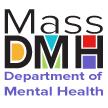 |
The Transitions to Adulthood Center for Research (formerly known as the Transitions RTC) promotes the full participation in socially valued roles of transition-age youth and young adults (ages 14-30) with serious mental health conditions. The Transitions to Adulthood Center for Research (Transitions ACR) is located within the Systems and Psychosocial Advances Research Center (SPARC) and houses The Learning & Working During the Transition to Adulthood Rehabilitation Research & Training Center (The Learning & Working RRTC), among other projects.
The Learning & Working RRTC is a national effort that aims to improve the supports of this population to successfully complete their schooling and training and move into rewarding work lives.
Funded by the National Institute on Disability, Independent Living, and Rehabilitation Research (NIDILRR), and from the Center for Mental Health Services of the Substance Abuse and Mental Health Services Administration (SAMHSA).
SPARC
As a Massachusetts
Department of Mental Health Research Center of Excellence, SPARC aims to improve the mental and behavioral health of all citizens of Massachusetts and beyond.
|
|
Access this webinar,
Successfully Employing Peer Specialists: A Framework and Tools, describing a framework for and specific tools on successfully employing peer specialists, on the
NASMHPD website.
|
|
Thursday, March 22, 2018
1:00 - 2:00 PM EDT
This webinar asks participants to consider the ways in which the mental health system creates disabilities among people with mental health conditions. Michelle Mullen will guide participants through the messages and actions taken and/or encouraged by the system that create the "system effects" that are commonly misinterpreted as psychiatric symptoms. This webinar will describe the triggering events that lead to "system effects" and the negative trajectory, such as poverty, unemployment, and social isolation that are typically associated with mental health diagnoses.
Funded by the National Institute on Disability, Independent Living, and Rehabilitation Research, United States Department of Health and Human Services (NIDILRR; grant number A-90DP0063 ). NIDILRR is a Center within the Administration for Community Living (ACL), Department of Health and Human Services (HHS).
|
 |
|
 |
|
| Empowering Youth in Transition |
In school...
You've seen our tip sheets on Outside-the-Box-College accommodations, but have you viewed our Comeback TV episodes on this topic? Check out these episodes on educational accommodations and learn how these
additional
supports can help college students with mental health lived experience.
For more resources on education, click here!
Funded by the National Institute on Disability, Independent Living, and Rehabilitation Research, and from the Center for Mental Health Services of the Substance Abuse and Mental Health Services Administration, United States Department of Health and Human Services (ACL Grant# 90RT5031, The Learning and Working Transitions RRTC).
|
 |
On the job...
What is the meaning of work among young adults with
serious mental health conditions (SMHC) who were enrolled in vocational support services?
Findings show that the meaning of work among young adults with SMHC is not only economic but also psychological and social.
See our tip sheet There's More to Young Adult Unemployment Than Mental Health: What to Look For here and our other resources on employment here.
Funded by the National Institute on Disability, Independent Living, and Rehabilitation Research, and from the Center for Mental Health Services Substance Abuse and Mental Health Services Administration, United States Department of Health and Human Services (NIDILRR grant number H133B140040, The Learning and Working Transitions RRTC).
|
 |
In the community...
Young adults living with a mental health condition encounter unique challenges as they transition to adulthood. Learn more about the factors that come into play during this important transition in this presentation,
Navigating the Transition to Adulthood with a Serious Mental Health Condition.
Funded by the National Institute on Disability, Independent Living, and Rehabilitation Research, and from the Center for Mental Health Services of the Substance Abuse and Mental Health Services Administration, United States Department of Health and Human Services (ACL Grant# 90RT5031, The Learning and Working Transitions RRTC).
|
 |
|
Join us at the Tampa Conference!
|
Every year, the "Tampa Conference" sponsors a track on transition-age youth and young adults. This year, our Learning and Working RRTC and Pathways RTC will feature research with an emphasis on education, employment and community participation among youth and young adults in an effort to highlight the current state of the science in these areas.
Our researchers Maryann Davis, Marsha Ellison, Kathryn Sabella, Michelle Mullen, Amanda Costa, Laura Golden, Emma Pici-D'Ottavio, Rachel Stone, Jennifer Whitney, Anwyn Davis, and our collaborators will be presenting on various studies from our Center including PASS, CHEER, HYPE, and many more. Stay tuned for copies of these informative presentations.
We hope to see you in less than a month at Tampa!
|
 |
|
Subscribe and Share!
Please share this newsletter with your network. To subscribe, click
here.
|
|
|
|
|
|
Some of the content, development and maintenance of this newsletter were developed under a grant with funding from the National Institute on Disability, Independent Living, and Rehabilitation Research, and from the Center for Mental Health Services, Substance Abuse and Mental Health Services Administration, United States Department of Health and Human Services (NIDILRR grant number 90RT5031). NIDILRR is a Center within the Administration for Community Living (ACL), Department of Health and Human Services (HHS). The contents of this newsletter do not necessarily represent the policy of NIDILRR, ACL, HHS, and you should not assume endorsement by the Federal Government.
|

The Transitions to Adulthood Center for Research (formerly known as the Transitions RTC) is part of the Systems and Psychosocial Advances Research Center, a Massachusetts Dept. of Mental Health Research Center of Excellence.
|
|
Copyright © 2017. All Rights Reserved.
|
|
|
|